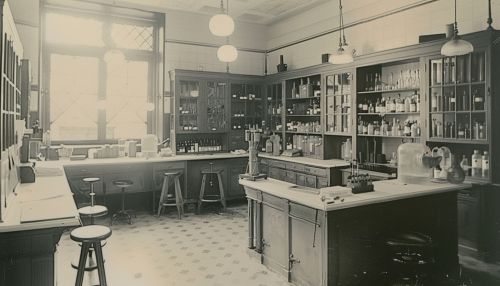Shibasaburo Kitasato
Early Life and Education
Shibasaburo Kitasato was born on January 29, 1853, in Oguni, a small town in Kumamoto Prefecture, Japan. He was the fourth son in a family of farmers. Despite his humble beginnings, Kitasato was determined to pursue a career in medicine. He moved to Kumamoto City at the age of 14 to study at the Kumamoto Medical School, a private institution founded by Dutch physicians.


In 1874, Kitasato was accepted into the prestigious Tokyo Imperial University, where he studied under Dr. Keisuke Ito, a renowned Japanese bacteriologist. Kitasato's passion for bacteriology was ignited during his time at the university, and he graduated in 1883 with a degree in medicine.
Career and Contributions to Medicine
After graduation, Kitasato began his career at the Tokyo Imperial University Hospital. However, his passion for bacteriology led him to leave Japan in 1885. He moved to Germany to work in the laboratory of Dr. Robert Koch, a leading figure in the field of bacteriology.
During his time in Germany, Kitasato made several significant contributions to the field of bacteriology. In 1889, he successfully isolated the bacterium Clostridium tetani, which causes tetanus. Kitasato's work on tetanus was groundbreaking, as he was the first to grow the bacterium in pure culture and demonstrate its ability to produce disease.
In 1894, Kitasato traveled to Hong Kong during an outbreak of the bubonic plague. There, he successfully isolated the bacterium Yersinia pestis, the causative agent of the plague. His discovery was instrumental in understanding the disease and developing treatments.


Upon his return to Japan in 1899, Kitasato founded the Kitasato Institute, a private research institution dedicated to the study of infectious diseases. The institute played a crucial role in advancing medical research in Japan and continues to be a leading institution in the field of infectious diseases.
Later Life and Legacy
Kitasato continued to work at the Kitasato Institute until his retirement in 1931. He passed away on June 13, 1931, leaving behind a legacy of significant contributions to the field of bacteriology.
Kitasato's work has had a lasting impact on the field of medicine. His research on tetanus and the bubonic plague has led to the development of effective treatments for these diseases. Furthermore, the Kitasato Institute continues to be a leading institution in the field of infectious diseases, carrying on Kitasato's legacy.


